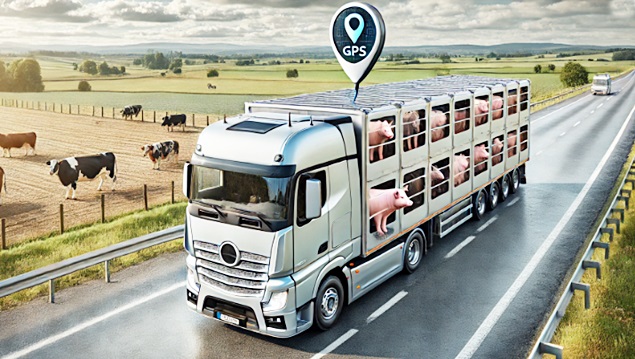1279

The Debate on GPS Monitoring for Live Animal Transport Within the EU
The transport of live animals within the European Union has become a highly debated topic, particularly regarding the use of GPS technology to monitor these shipments.
According to Euractiv, recent EU Council documents have revealed divisions among member states over the implementation and sharing of GPS data in this context.
The Polish Presidency's Proposal
The Polish Presidency of the EU Council has proposed that GPS data from trucks transporting live animals should only be shared in cases where a regulatory breach is detected.
This approach would limit real-time access to data, allowing authorities to intervene only retrospectively, once an irregularity has been identified.
The aim of this proposal is to protect sensitive data and reduce the administrative burden on transport operators.
Reactions from Member States
Member states are divided on this issue. Some countries support Poland’s proposal, arguing that limiting data sharing safeguards the privacy and commercial interests of transporters.
Others, however, believe that real-time access to GPS data is essential to ensure animal welfare and prevent abuse.
These countries argue that continuous monitoring enables swift interventions in cases of emergency or improper transport conditions.
Legislative Context
The debate is taking place amid the revision of the EU regulation on the protection of animals during transport.
The European Commission has previously proposed the mandatory use of GPS systems to monitor animal transports, aiming to enhance transparency and ensure compliance with animal welfare standards.
However, details regarding data access and usage remain subject to negotiation among member states.
Stakeholder Involvement
Animal welfare organizations advocate for real-time access to GPS data, arguing that this is the only way to ensure effective oversight and prevent unnecessary animal suffering.
On the other hand, transporters’ and farmers’ associations express concerns about additional costs and potential data privacy issues.
They emphasize the need for a balanced approach that ensures effective monitoring while protecting economic interests.
Outlook
Negotiations on the use and sharing of GPS data in live animal transport are ongoing.
It is crucial for member states to reach a consensus that ensures both animal welfare and the protection of transporters' and farmers' interests.
A potential solution could involve a hybrid system where data is collected in real time but access is strictly regulated, allowing for rapid interventions only in justified cases.
In conclusion, the debate on GPS monitoring of live animal transport highlights the complex challenge of aligning animal welfare standards with economic interests and data protection within the European Union.
The outcome of these negotiations will significantly impact future policies in agriculture and animal transport.





